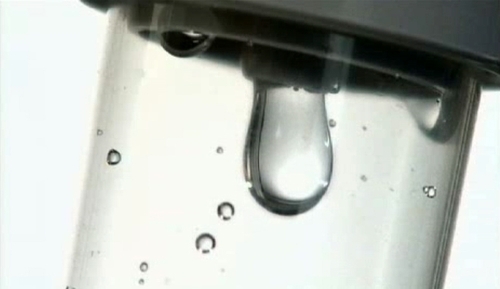By Niall McCracken
THERE are unexplained changes in the ordering pattern and management of a fluid linked to the death of three Northern Ireland children, the Hyponatraemia Inquiry has heard.
‘Solution No. 18’ is at the heart of criticism made in relation to the fluid management of Adam Strain (4), Claire Roberts (9) and Raychel Feguson (9), whose deaths are being investigated by the inquiry.
Speaking at the public hearing in Banbridge earlier today (Tuesday) counsel to the inquiry Monye Anyadike-Danes QC questioned changes in the quantity of fluid ordered by the Royal Belfast Hospital for Sick Children. The inquiry heard that in January 2000 there were 359 bags of Solution No. 18 ordered per month but that by July 2001 the quantity fell to just six.
The three children died between 1995 and 2001.
The inquiry is also examining the events following the death of Lucy Crawford who died at the age of 17 months and specific issues arising from the treatment of Conor Mitchell who died at the age of 15.
Hyponatraemia is a condition which results in a low level of sodium in the blood stream causing the brain cells to swell with too much water and in some cases resulting in death.
All of the children whose deaths are being investigated by the inquiry were either transferred or admitted to the Royal Belfast Hospital for Sick Children (RBHSC).
Lucy Crawford died at the age of 17 months in the RBHSC on 14th April 2000, after having been initially treated at the Erne Hospital in Enniskillen. Raychel Ferguson died at the age of nine years in the RBHSC on the 10th of June 2001, after having been initially treated in Altnagelvin Hospital.
Speaking at today’s hearing Monye Anyadike-Danes QC said that the inquiry had written to the Directorate of Legal Services (DLS), provider of legal services for the Health and Social Care Sector, to try and determine from records when the children’s hospital had stopped administering Solution No. 18.
In their initial response earlier this month DLS said that between January 2000 and July 2001 the pharmacy department at the hospital had placed no orders for Solution No. 18 and it was “not used in the children’s hospital” during this period.
Ms Anyadike-Danes QC pointed out that it was significant that the children’s hospital had ceased using Solution No. 18 this early as it pre-dated Lucy’s death.
She said: “That proved to be, we thought, a significant period because, of course, it pre-dates Lucy. That, we thought, was suggesting that, before Lucy’s admission and treatment, the Children’s Hospital had been aware of something that caused them as early as January 2000 to cease using Solution No. 18.”
However in a second letter to the inquiry on May 17 2013, DLS said that the information in the previous correspondence was incorrect and that during this period the pharmacy department had requested 6,493 bags of Solution No. 18 for the children’s hospital.
A further breakdown outlined that the quantity fell from 359 bags per month in January 2000 to 42 bags in June 2001 and six bags in July 2001.
Ms Anyadike-Danes QC said: “We don’t know at this stage why this is the case and what gave rise to changes in the ordering pattern.”
The mismanagement of Solution No. 18 is at the heart of criticisms made in the care of Adam, Claire, Lucy and Raychel as its relatively low sodium content has been connected with the development of dilutional hyponatraemia.
The public hearings are currently hearing evidence regarding the case of Lucy Crawford who died after being treated in the Erne Hospital in Enniskillen in 2000.
The inquiry is not investigating the circumstances of Lucy’s death but is looking at the potential impact on the death of Raychel Ferguson 14 months later.
Speaking about the aftermath of Lucy’s death at today’s hearing Ms Anyadike-Danes QC said: "So the issue then, Mr Chairman, is how can a child die in such apparently unusual and unexpected circumstances and yet no one seems to be tasked with providing an explanation for what has happened?
“Our investigation has suggested, at least thus far, that it was conducted in such a way that the key clinicians were not actually interviewed about the events they had participated in or witnessed, let alone challenged about them to be asked their views.”
The hearing continues tomorrow.
 By
By
